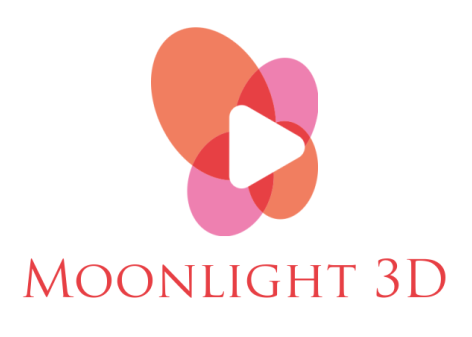Constant Contact vs. Mailchimp: A Comprehensive Comparison
Are you on the quest for the perfect email marketing platform to supercharge your business? Hold onto your hats, folks! Get ready for a clash of the email marketing titans that’s hotter than a flamingo in a heatwave. We’re about to unleash the battle of the pixel-perfect templates, the showdown of the subject lines, and the grand duel of the delivery rates. It’s Constant Contact vs. Mailchimp, and we’re here to guide you through this epic marketing melee, complete with their strengths, weaknesses, and more puns than a dad-joke competition. So, grab your popcorn and marketing magnifying glass, because by the end of this, you’ll know which one deserves a VIP pass to your marketing party!
How to Choose the Best Email Marketing Platform
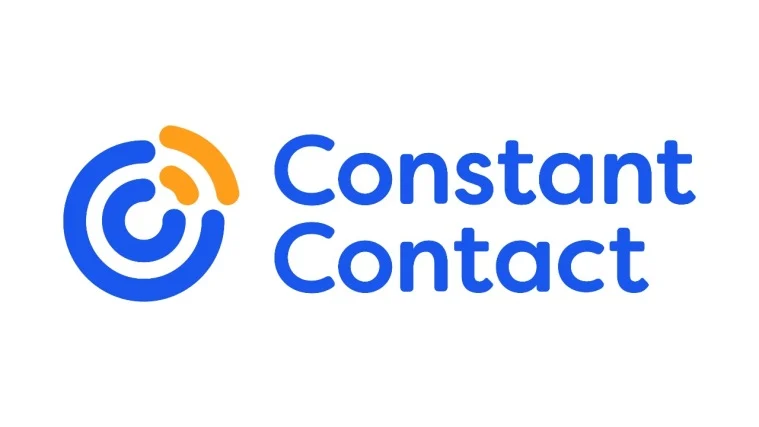
Now that you’ve seen the battle between Constant Contact and Mailchimp, you might be wondering, “How do I choose the best email marketing platform for my unique needs?” Great question! Let’s dive into some essential considerations to help you make an informed decision.
- Define Your Goals
Before you start comparing platforms, clarify your email marketing goals. Are you looking to increase sales, engage with your audience, promote events, or simply stay in touch with your subscribers? Knowing your objectives will guide your choice.
- Know Your Budget
Your budget plays a significant role in selecting the right platform. Both Constant Contact and Mailchimp offer various pricing tiers, so evaluate how each aligns with your financial resources. Consider not only the current costs but also potential future expenses as your email list grows.
- Assess Ease of Use
Evaluate the platform’s user-friendliness, especially if you’re new to email marketing. Some platforms, like Constant Contact, are known for their intuitive interfaces, making them ideal for beginners. Others, like Mailchimp, offer more features but may have a steeper learning curve.
- Examine Features
List down the essential features you need, such as email templates, list management, automation, and analytics. Check if the platform you’re considering offers these features and if they align with your requirements.
- Consider Integration
Think about the other tools and apps you use in your business. Ensure that the email marketing platform you choose can seamlessly integrate with your existing systems. This integration can save you time and streamline your marketing efforts.
- Explore Support and Resources
Customer support and available resources can make or break your experience with an email marketing platform. Look for platforms that offer robust customer support, tutorials, webinars, and a thriving community where you can seek advice and solutions.
- Analyze Deliverability Rates
High deliverability is essential to ensure your emails reach your subscribers’ inboxes. Research the platform’s reputation for deliverability and spam prevention measures. Both Constant Contact and Mailchimp have good track records in this regard.
- Trial Period
Take advantage of free trials offered by email marketing platforms. Use this time to test the platform’s features, ease of use, and performance. It’s the best way to determine if it’s the right fit for your needs.
- Scalability
Consider the future growth of your email list and business. Ensure that the chosen platform can scale with you without a significant increase in costs or complications.
- Reviews and Recommendations
Read reviews and seek recommendations from peers and industry experts. Real-world experiences can provide valuable insights into the pros and cons of each platform.
- Data Security and Compliance
Given the increasing importance of data privacy and regulations like GDPR and CAN-SPAM, ensure that the platform you choose is compliant with these rules and takes data security seriously.
- Mobile-Friendly
In the wild and wacky world of modern technology, it’s absolutely imperative to have an email marketing platform that can groove to the mobile beat. Give it the ultimate test: see if it’s got a mobile app or if it’s just cool enough to hang out with your smartphone while you’re on the move.
By putting on your detective hat and digging into these factors, you’ll be able to make a decision that’s as informed as a fortune-teller’s crystal ball. It’s like choosing between a snazzy tuxedo and a flashy Hawaiian shirt for a formal event – go with what fits your style, budget, and the quirky needs of your business. After all, the best platform is the one that doesn’t cramp your digital style!
Constant Contact: The Old Reliable
Constant Contact Overview
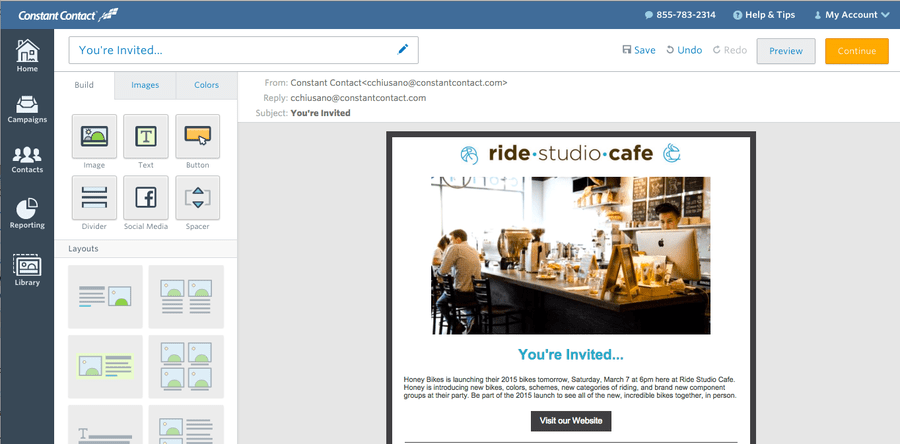
Let’s kick things off by shining the spotlight on Constant Contact. With its rich history dating back to 1995, this platform has stood the test of time. It’s like that trusty old friend who always has your back at every email marketing party.
Key Features of Constant Contact
- User-Friendly Interface: Constant Contact offers an intuitive and user-friendly interface that makes it easy for beginners to navigate and create email campaigns without a steep learning curve.
- Email Templates: The platform provides a wide selection of professionally designed email templates that can be customized to match your brand’s style and message.
- List Management: Constant Contact simplifies the process of managing your email list. You can easily import, segment, and organize your subscribers for targeted marketing.
- Contact Segmentation: You can segment your email list based on various criteria, such as location, behavior, and engagement, allowing you to send more personalized and relevant content to different groups of subscribers.
- Automation: While Constant Contact’s automation capabilities are not as advanced as some other platforms, it does offer basic automation features like autoresponders and drip campaigns to streamline your marketing efforts.
- Event Management: Constant Contact includes tools for event management, enabling you to create and promote events, send invitations, and track RSVPs all within the platform.
- A/B Testing: You can perform A/B tests on your email campaigns to determine which subject lines, content, or designs resonate best with your audience, helping you optimize your email marketing strategy.
- Image Library: The platform provides an image library where you can store and manage your graphics, ensuring easy access to visuals for your email campaigns.
- Integration: Constant Contact integrates seamlessly with various third-party apps and platforms, such as e-commerce systems, CRM software, and social media, allowing you to sync data and streamline your marketing efforts.
- Analytics and Reporting: It offers detailed analytics and reporting tools, giving you insights into the performance of your email campaigns, including open rates, click-through rates, and engagement metrics.
Constant Contact Pros
- User-Friendly Interface: Constant Contact is known for its user-friendly interface, making it a great choice for beginners and those with limited technical expertise. It offers a straightforward and intuitive platform for creating and managing email campaigns.
- Email Templates: The platform provides a wide selection of professionally designed email templates. This saves time and allows users to create visually appealing emails without the need for design skills.
- List Management: Constant Contact offers robust list management features. You can easily segment your email list, target specific audiences, and personalize your campaigns to improve engagement.
- Customer Support: Constant Contact is renowned for its exceptional customer support. They offer various support channels, including phone, chat, and email support, ensuring that users can get help when they need it.
- Deliverability: The platform boasts excellent email deliverability rates, meaning that your emails are more likely to reach your subscribers’ inboxes rather than being marked as spam.
- Integration: Constant Contact seamlessly integrates with various third-party applications and platforms. This versatility allows users to connect their email marketing efforts with other tools they use, such as CRM software or e-commerce platforms.
Constant Contact Cons
- Pricing: While Constant Contact does offer a free trial, its pricing can be on the higher side, particularly for small businesses with limited budgets. Some users may find it more expensive compared to other email marketing solutions.
- Limited Automation: Constant Contact’s automation features are somewhat basic compared to some of its competitors. If you require highly advanced automation workflows, you may find the platform lacking in this regard.
- Template Customization: While Constant Contact provides a variety of templates, the level of customization options may be limited for users who want to create highly unique and tailored email designs. This can be frustrating for those with specific branding requirements.
- Learning Curve for Advanced Features: While the platform is beginner-friendly, users looking to explore its more advanced features may encounter a learning curve. Some features and functionalities may not be immediately intuitive for those seeking advanced capabilities.
- Limited Free Plan: Unlike some other email marketing platforms, Constant Contact does not offer a permanent free plan. Although they provide a free trial, users looking for a long-term free option may need to explore alternatives.
Mailchimp: The Trendsetter
Mailchimp Overview
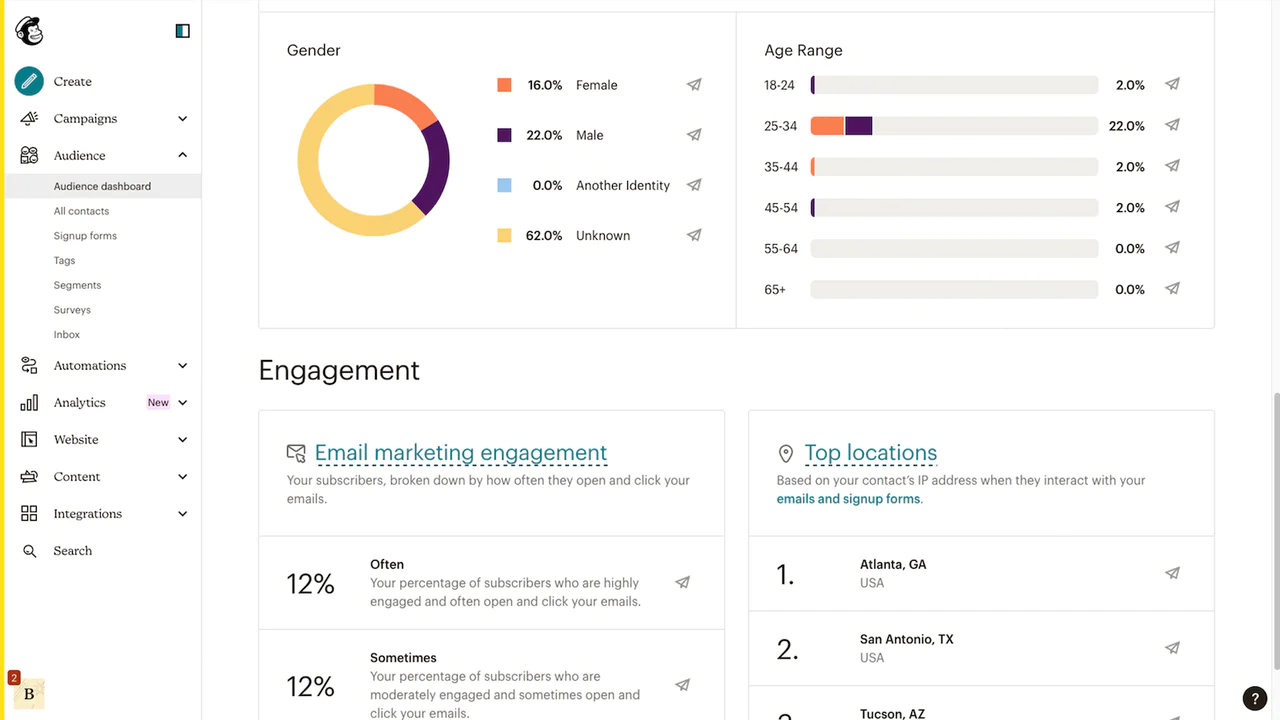
Now, let’s turn our attention to Mailchimp, the trendsetter in the email marketing world. Founded in 2001, Mailchimp has redefined the game with its innovative features and cheeky branding. It’s the cool kid at the email marketing block.
Key Features of Mailchimp
- E-commerce Integration: If you run an online store, Mailchimp seamlessly integrates with popular e-commerce platforms like Shopify and WooCommerce. This integration allows you to send targeted product recommendations, abandoned cart reminders, and more.
- Personalization: Use merge tags to personalize your emails, addressing each subscriber by name and tailoring content based on their preferences and behavior.
- Advanced Analytics: Gain valuable insights into your email campaign performance with Mailchimp’s detailed analytics. Track open rates, click-through rates, conversion rates, and more to refine your strategies.
- Landing Pages: Create custom landing pages for your campaigns without the need for coding skills. These landing pages can be used to capture leads, promote products, or deliver content.
- Social Media Integration: Share your email campaigns on social media platforms and track engagement. Mailchimp also allows you to add social sharing buttons to your emails.
- Mobile Apps: Stay connected and manage your campaigns on the go with Mailchimp’s mobile apps for iOS and Android devices.
- List Management: Easily manage your email lists by importing, segmenting, and cleaning your contacts. Mailchimp helps you maintain a healthy list for improved deliverability.
- RSS-to-Email: Automatically send emails to your subscribers whenever you publish new blog posts or content on your website through the RSS-to-Email feature.
- Multi-Channel Marketing: Beyond email, Mailchimp supports multi-channel marketing efforts, including social media advertising, Google remarketing ads, and postcard campaigns.
- Content Studio: Store and manage your marketing assets, such as images and files, in Mailchimp’s Content Studio for easy access and organization.
- Integration: Mailchimp offers a wide range of integrations with third-party apps and services, allowing you to connect your email marketing efforts with your favorite tools, like CRM systems, analytics platforms, and more.
Mailchimp Pros
- Free Plan: Mailchimp offers a free plan that allows you to send emails to a limited number of subscribers. This is great for small businesses and startups with tight budgets.
- User-Friendly Interface: While it may have a bit of a learning curve for advanced features, Mailchimp’s interface is generally user-friendly and intuitive, making it accessible to beginners.
- Advanced Automation: Mailchimp provides robust automation features, allowing you to set up intricate email sequences, segment your audience, and personalize your campaigns.
- E-commerce Integration: If you run an online store, Mailchimp’s e-commerce integration is a powerful tool. You can connect it to your store to send product recommendations, abandoned cart reminders, and more.
- A/B Testing: Mailchimp offers A/B testing, which allows you to experiment with different email elements to optimize your campaigns for better results.
- Marketing CRM: Mailchimp’s all-in-one marketing CRM helps you understand your audience better, making it easier to create targeted and personalized campaigns.
- Detailed Analytics: The platform provides detailed analytics and reporting, giving you insights into your email campaign’s performance, including open rates, click-through rates, and more.
- Mobile App: Mailchimp offers a mobile app, so you can manage your email marketing campaigns on the go, whether you’re on a smartphone or tablet.
- Integration Capabilities: Mailchimp integrates seamlessly with various third-party apps and platforms, expanding its functionality and versatility.
Mailchimp Cons
- Learning Curve: While Mailchimp is user-friendly, some of its more advanced features can be challenging to grasp for beginners. It may take some time to fully leverage its capabilities.
- Pricing for Growth: As your email list and marketing needs grow, Mailchimp’s pricing can become less budget-friendly. The free plan has limitations, and the paid plans can get costly as your subscriber count increases.
- Limited Customer Support: While Mailchimp does offer customer support, it may not be as responsive or comprehensive as some users would prefer. The level of support you receive can vary depending on your plan.
- Compliance Restrictions: Mailchimp has strict policies regarding compliance with email marketing regulations. If your content or subscriber list doesn’t meet their standards, you may encounter difficulties.
- Template Customization: While Mailchimp provides templates, customization options can be somewhat limited, especially for those who want to create highly unique and branded email designs.
- Limited Deliverability Support: While Mailchimp has good deliverability, it may not be as renowned for this aspect as some other email marketing platforms.
Constant Contact vs. Mailchimp: The Showdown
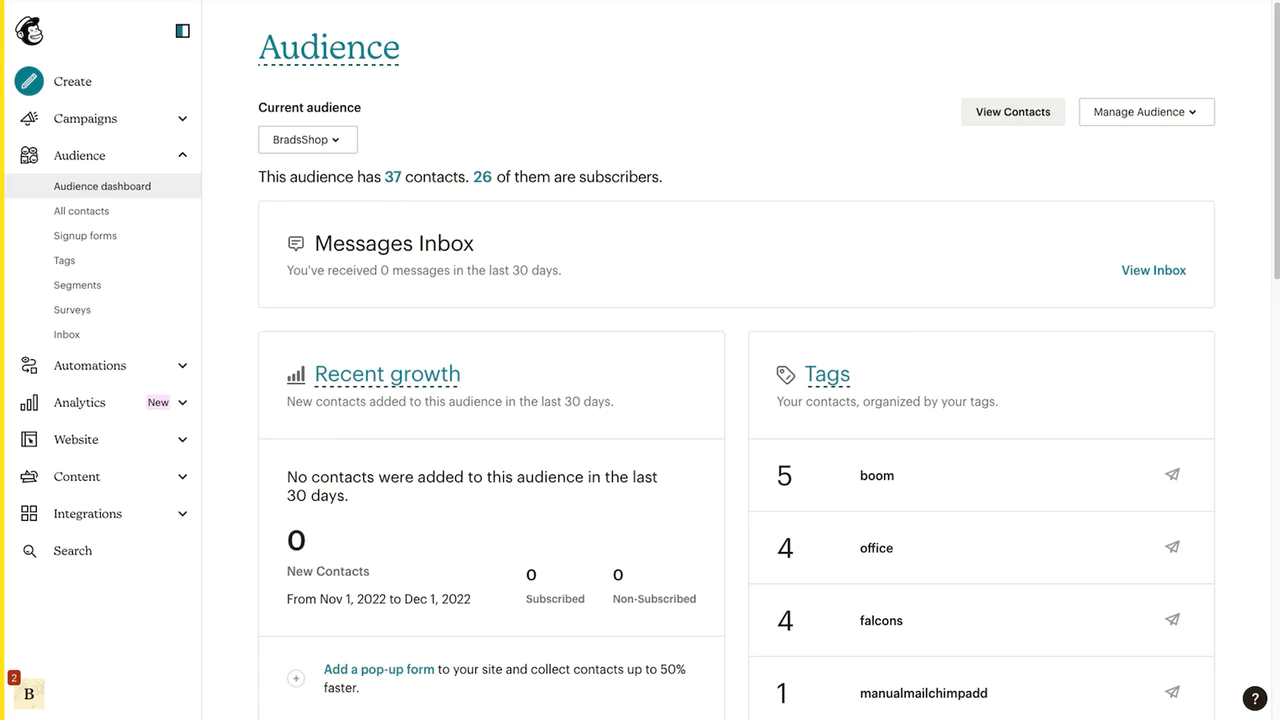
Now that we’ve had a close look at each contender, let’s get them into the ring for a head-to-head battle. Here’s a side-by-side comparison to help you make an informed decision.
This showdown is like a clash of email marketing titans, each with its unique strengths and strategies. It’s a bit like watching a classic chess match where every move counts.
User-Friendly Interface: Constant Contact and Mailchimp both offer user-friendly interfaces, but they have different flavors. Constant Contact is like your trusty old family recipe, tried and tested, while Mailchimp is more like an exotic dish that takes some time to savor and appreciate.
Templates: In the realm of templates, Constant Contact brings quantity to the table. It’s like a buffet of options, where you can pick and choose to your heart’s content. On the other hand, Mailchimp’s templates are more like a curated menu at a gourmet restaurant—sophisticated, professional, and highly customizable.
List Management: When it comes to list management, both contenders pack a punch. Constant Contact and Mailchimp make it easy to organize and segment your subscribers, ensuring that your emails hit the right targets. It’s a bit like having a meticulously organized Rolodex of contacts.
Customer Support: Constant Contact offers a customer support experience that’s akin to having a personal butler at your beck and call. They’re ready to assist you via phone, chat, or email, ensuring you never feel alone in your email marketing journey. Mailchimp’s support, while good, might not be as white-glove, but it’s like having a reliable friend who’s always there when you need them.
Deliverability: In the battle of email deliverability, Constant Contact is the seasoned courier who knows all the shortcuts to ensure your emails reach their destination—the inbox. Mailchimp, while solid, might occasionally take a more scenic route.
Automation: Constant Contact offers basic automation features, making it suitable for those who prefer simplicity. It’s like having a reliable car with just the essential features. Mailchimp, on the other hand, is like a sports car loaded with advanced automation capabilities. It can take you on a thrilling ride through intricate email sequences and workflows.
Free Plan: If you’re on a tight budget, Mailchimp is like finding a treasure chest full of gold coins. Their free plan allows you to get started with email marketing without spending a dime. Constant Contact, while not offering a free plan, is more like a high-quality investment that pays off over time.
Pricing: The pricing battle is where Constant Contact shows its mettle. It might be a bit pricier than Mailchimp, but it’s like choosing between a reliable, luxury sedan and a budget-friendly compact car. The decision depends on your budget and the horsepower you need.
In the end, this showdown is a bit like choosing between two world-class restaurants. Constant Contact offers the comfort of a well-established eatery with a rich history, while Mailchimp is the trendy spot with innovative dishes and a more budget-friendly menu.
So, which one wins the showdown? Well, that depends on your specific needs, preferences, and budget. The important thing is that both Constant Contact and Mailchimp are formidable contenders in the email marketing arena, and whichever you choose, you’re bound to elevate your email marketing game. It’s like having two world-class trainers in your corner, ensuring you come out of this showdown a marketing champion.
| Criteria | Constant Contact | Mailchimp |
| User-Friendly | Yes | Yes (with a learning curve) |
| Templates | Abundant | Professional and customizable |
| List Management | Easy | Easy |
| Customer Support | Top-Notch | Good |
| Deliverability | Excellent | Good |
| Automation | Basic | Advanced |
| Free Plan | No | Yes |
| Pricing | Slightly Higher | Competitive |
So, Which One Is Right for You?
- If You’re a Beginner:
Constant Contact is like the patient mentor who guides you through the world of email marketing with a gentle hand. Its user-friendly interface is akin to a well-worn path in a friendly forest. You won’t find yourself lost in a labyrinth of confusing settings and options. If you’re new to email marketing and want a platform that’s as approachable as a friendly neighbor, Constant Contact is your answer.
- If You’re on a Tight Budget:
Picture this: you’re a fledgling entrepreneur with a limited marketing budget, but you know the importance of email marketing. Enter Mailchimp with its free plan, like a lifeline thrown to you in the stormy seas of business. It allows you to dip your toes into email marketing without worrying about the cost. It’s the budget-friendly choice that can help you make waves in the digital marketing world without breaking the bank.
- If You Need Advanced Automation:
Imagine you’re the conductor of a symphony, orchestrating a complex composition of email campaigns. You need precision, timing, and finesse. Mailchimp steps in as your virtuoso violinist, offering advanced automation tools that can bring your email marketing symphony to life. From intricate drip campaigns to behavior-triggered emails, Mailchimp’s automation capabilities are second to none.
- If You Prioritize Deliverability:
In the world of email marketing, deliverability is your golden ticket to success. It’s like the secret ingredient that makes your emails reach their intended destinations—the inbox. Constant Contact is like a trusted courier service that knows the fastest routes and ensures your emails arrive at their destination in pristine condition. With high deliverability rates, it’s the choice for businesses that can’t afford to have their messages lost in the spam folder.
So, which one is right for you? The answer hinges on your unique circumstances, goals, and preferences. Whether you’re seeking simplicity, cost-effectiveness, advanced features, or top-notch deliverability, both Constant Contact and Mailchimp have their strengths. Take a moment to assess your needs, and you’ll find the perfect email marketing partner to help you chart the course to digital success.
Wrapping It Up
In this epic battle of Constant Contact vs. Mailchimp, both platforms have their strengths and weaknesses. Constant Contact brings a rich history and excellent customer support, while Mailchimp offers innovative features and a generous free plan. The decision ultimately boils down to what aligns best with your business goals and resources.
As you venture forth into the world of email marketing, keep in mind that the right tool can make all the difference in your success. Whether you go with the old reliable Constant Contact or the trendsetting Mailchimp, you’re taking a significant step toward reaching your audience effectively and growing your business.
FAQ
1. Is there a free trial for both Constant Contact and Mailchimp?
Yes. Both Constant Contact and Mailchimp offer free trials, allowing you to test their features before committing to a paid plan.
2. Can I import my existing email list into both platforms?
Yes. Both platforms allow you to import your existing email list easily. However, make sure to follow their guidelines to maintain good deliverability rates.
3. Which platform offers better analytics and reporting?
Mailchimp. Mailchimp provides more advanced analytics and reporting features, giving you detailed insights into your email campaigns’ performance.
4. Do Constant Contact and Mailchimp offer mobile apps?
Yes. Both platforms offer mobile apps for managing your email marketing campaigns on the go.
5. Can I switch from one platform to the other easily if I change my mind?
It depends. While you can migrate your email list, you may need to recreate your campaigns and templates when switching between platforms, so plan accordingly.

Since 2019, Sabrina has been sharing her expertise as the author of three online courses, making photography and videography accessible to all, regardless of age or talent. Her blog, moonlight3d, serves as a hub for connecting with her audience, offering valuable tips on software, videography, and personal experiences. Feel free to reach out to Sabrina for insights and guidance on your creative journey through photography and videography.
